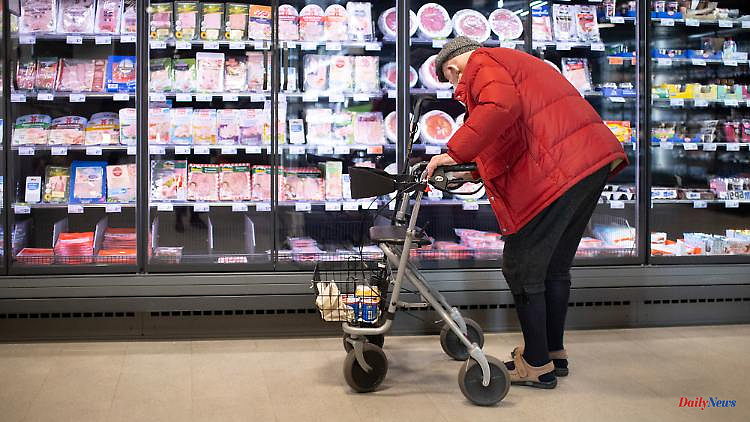The ongoing high inflation "eats up" part of the relief for German households, summarizes the IMK in a study. This is already having a noticeable impact on middle incomes, and pensioners are having a particularly hard time. If they receive less than 900 euros a month, the relief almost fizzles out.
According to the IMK Institute, the sharp rise in prices for energy and food is dampening the impact of the federal government's relief packages. The bottom line is that the measures taken by the traffic light coalition would help workers and people with basic security, but there would be an imbalance for pensioners, as can be seen from updated calculations by the Institute for Macroeconomics and Business Cycle Research (IMK) of the Hans Böckler Foundation, which is close to the trade unions.
Accordingly, the relief for a family with two working adults, two children and a below-average monthly net income of 2000 to 2600 euros added up to around 64 percent of the foreseeable additional burdens. In April, however, the researchers had still expected that 79 percent would be compensated. For a comparable family with an average net income of 3,600 to 5,000 euros, it is 54 percent - and thus less than the 68 percent forecast in the spring.
According to the IMK experts, the current relief packages of around 30 billion euros have "generally resulted in extensive and socially balanced relief" for those in employment and recipients of social benefits, while there is a "social imbalance" among those who are not employed, especially pensioners ". The relief effect for singles who are retired and have a low net income of less than 900 euros per month is just ten percent. Around 46 percent would be compensated if such households were entitled to housing benefit.
Here the federal government must be ready to top it up again for the coming year. The IMK is forecasting a drop in the inflation rate from just under seven percent this year to just under three percent in 2023. "This means that prices, especially for basic necessities, will remain high and there will also be a considerable additional burden in the coming year."












